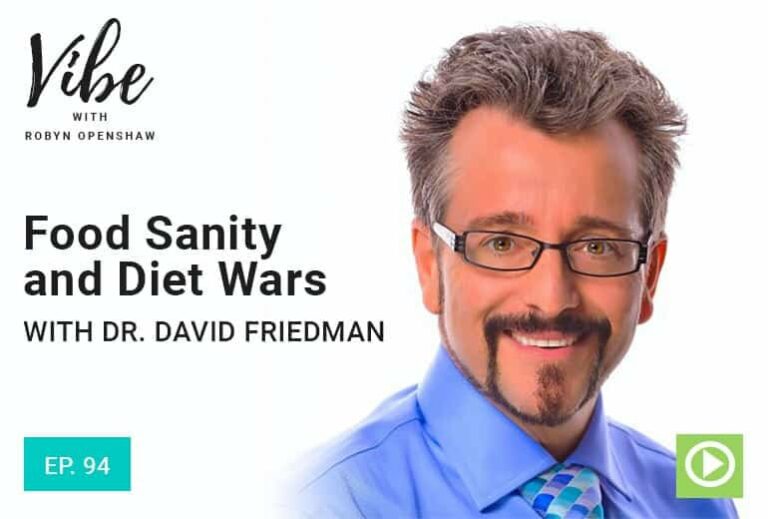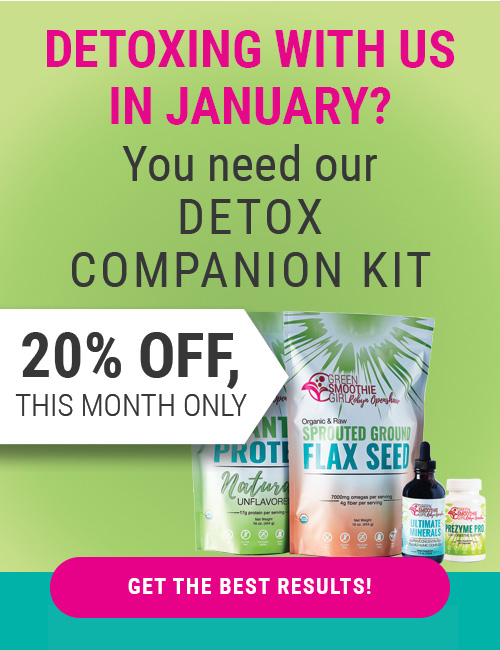Ep.94: Food Sanity and Diet Wars Interview with Dr. David Friedman

Podcast: Play in new window
Dr. David Friedman shares my passion for sorting through all the madness in the diet wars and cults. In this episode, he gives you interesting information that debunks myths that many of us may believe about supplements and food.
He is the award-winning, national best-selling author of Food Sanity, how to eat in a world of fads and fiction. He’s a Doctor of Naturopathy, Clinical Nutritionist and Chiropractic Neurologist. He is a Board Certified Alternative Medical Practitioner, Board Certified in Integrative Medicine and a registered Naturopathic Diplomate. Dr. Friedman is a contributing writer for a plethora of leading news, health and fitness magazines including U.S News & World Report, Newsweek, Readers Digest, Better Nutrition, AARP Magazine, and Woman’s Word, just to name a few. He’s been a guest on over a hundred syndicated radio and television shows and his bestselling CD, America’s Unbalanced Diet, has sold over a million copies, helping raise awareness about the unhealthy foods people are consuming.
As the Health Expert for Lifetime Television’s morning show, millions of people have enjoyed his weekly, cutting-edge features. Viewers favorites include: Artificial sweeteners cause obesity; milk causes brittle bones and how some vitamins may actually contribute to disease. Dr. Friedman also hosts the nationally syndicated program To Your Good Health Radio, which has changed the face of talk radio by incorporating entertainment, shock value and solutions to everyday health and wellness issues.
LINKS AND RESOURCES:
Read his book: Food Sanity
Learn more from Dr. Friedman: Website
TRANSCRIPT:
Robyn: Hey everyone, it’s Robyn Openshaw and Welcome back. I’m so glad when you show up on The VIBE show to learn a little bit more about your health and wellness and what leads to a high vibration life. I met Dr David Friedman when he interviewed me on his radio show when I was launching my book “Vibe” at the end of 2017. And he has just come out with a book that I just read. It is called “Food Sanity”. He’s a doctor of naturopathy. He’s a clinical nutritionist and he’s a chiropractic neurologist. So he’s a board certified Alternative Medical Practitioner and is board certified in Integrative Medicine. And he runs a syndicated radio and television show and so that’s what I was on. Very much enjoyed him interviewing me because unlike some people who interviewed me, he actually read the book. He read the book, he got it. It was a really fun interview.
So on his show he has interviewed people like John Travolta, Jenny McCarthy, my guess is probably on vaccines, Jamie Lee Curtis, Val Kilmer, Paul Newman. And so he really digs deep into how to help people with their everyday health and their wellness issues. And this book that we’re talking about today, he has a passion like I do for sorting through all the madness in the diet wars, the diet colts. So I’m really excited to bring you this interview. He gives you lots of interesting information that busts up some myths that many of us may believe about supplements and about food. So welcome to The VIBE show Dr David Friedman.
Dr. Friedman: Oh, great to be here, Robyn.
Robyn: So I’m really excited about your book. I’ve been reading it. It’s called, “Food Sanity: How to Eat in a World of Fads and Fiction”. One of the reasons I’m excited about it, it’s not just that we interview lots of long time health and wellness experts and specifically nutrition experts on what the truth is out there, in a world of fads, but also your title really spoke to me because we’ve been thinking about doing a documentary on the diet wars. And just tracing the economics of it and what works and what doesn’t and why these diet fads come and go and why they make tens of millions of dollars, many of them. And so tell us a little about why you wrote this book.
Dr. Friedman: Yeah. The main reason I wrote the book is after 18 years of frustration that I endured as a syndicated TV and radio health expert, I’ve interviewed hundreds of scientists, doctors and bestselling authors, kind of like you, Robyn, in the hopes to share information that’ll make your audience reach optimal health. Well, unfortunately that’s not what happened in my case. Every guest would contradict the previous expert leaving everyone, including me, more confused. From proponents of the Vegan, the Paleo, the Mediterranean to Gluten Free. Then you got the Low Carb diet. The opinions are different night and day.
I remember oatmeal used to help balance blood sugar, research proved it. And now we’re told to avoid grains because they spike your blood sugar. And coffee used to be considered unhealthy, today we’re told it helps prevent disease and prolongs life. And eggs used to cause high cholesterol. Now, research shows eggs contain lecithin, which helps lower cholesterol. So really after growing frustrated with all the conflicting opinions, I wrote, “Food Sanity”, it breaks through all the facts, fads and fiction. And finally answers the big question. What are we supposed to be eating?
Robyn: In your introduction, you were talking about, some examples in your own life of how you would take lots of supplements and then find out later that that amount of the supplement was toxic or that you really shouldn’t be taking the supplement at all. Is that part of your own personal journey that led you to want to kind of cut through the clutter and tell people what the real truth is?
Dr. Friedman: Yeah. When you’re talking about supplements and vitamins, I’m a Naturopath, so I was trained to take a bag full of them and to recommend them to my patients, and that’s what I did. I just did what I was taught. And I practiced what I preached. And then I found out that, you know, people were talking about the Port-a-potty and how they were showing up in there. And I had a patient tell me that she had a clogged up septic tank that was repaired and they found these vitamin pills intact with the names still readable. And I said, “Wait a minute, I’m taking a handful of pills”. And I kind of researched and found out that so many of them are made out of rocks and dolomite and oxides and chemicals. They’re not natural and that stuff just doesn’t digest well and it passes right through us. And the part that stays in us might not be very good.
In fact, people don’t realize this, that so much research shows, like the British Medical Journal showed that calcium supplements increase the risk of heart attacks by 30 percent. And then there’s John Hopkins research found vitamin E supplements increase a person’s risk of dying from all causes. And then I read in the Mount Sinai School of Medicine, they talk about vitamin C supplement causes genetic damage to your genes and offspring. So basically when I looked at that, I said, “Well, wait a minute, are vitamins not good? Or is it just the ones manufactured chemicals in a lab?”
And that’s the key. People don’t realize the pharmaceutical industry owns ALL of the major vitamin companies on the market. Bayer healthcare of aspirn makes the “One a Day”, and “Flintstones Chewables”. “Theragran-M” is manufactured by Bristol Myers Squibb. “Centrum” is owned by the largest pharmaceutical company in the world, Pfizer. And just like the drugs they make, there’s nothing natural in these vitamin supplements.
So in my book, “Food Sanity”, I share how many of the vitamins that are used to create these toxic chemicals are also used to make antibiotics, like Methanol, Benzine, Acetate, Petroleum esters. And I talk about how they’re used to make antifungal medication like to an acetic acid. The term “natural” is so overused, and it’s not defined by government. So when you see these quote “vitamins” that you think are natural, they’re far from it. So I do love supplements but find them from whole food. My theory is we weren’t created in a laboratory and neither should our vitamins be.
Robyn: So what do you think this means for us? That all the drug companies have bought up all the supplement companies. I mean, you’re suggesting that they’re using synthetic ingredients that are similar to isolated nutrients and food. But I hear a lot of people bragging about their product by saying that it’s pharmaceutical grade. And I kind of laugh because I’m like, that’s a good thing because…Why? So what does it mean for us as the consumer that the drug companies own the supplement companies?
Dr. Friedman: I think it’s a big conflict of interest if you ask me. Because these same companies own the big expensive drugs that they want you on when you’re sick. And you really think they’re putting a lot of thought and love into these vitamins that are supposed to prevent disease that you buy for $5? So there’s a conflict there. I don’t think that the people that are promoting sick care should be working on our healthcare. You know, when you talk about vitamins and preventative care.
Robyn: So other people have tackled this topic of trying to sort through the food fads. What is different about your book?
Dr. Friedman: The big thing that’s different about my book is, you know, and I’ve interviewed them all. I’ve read most of who I interview or at least looked at the books. And what I do is something different, I use a common science meets common sense approach to figuring out the culinary conundrum. So unfortunately we can’t rely on the scientific studies because as you know, that changes weekly sometimes, plus many of them are biased. And I spell that b u y a s e d meaning they’re bought and paid for. So I show the reader how to avoid these paid for unreliable scientific studies. Tap into their instincts. Trust their gut, instead of relying on what they hear in the media this week and next. Then we explore the biology of the body and see if we were designed to eat it.
And when you combine these three things, Robyn, science, instincts and biology, you basically have a foolproof blueprint that shows you what you should and shouldn’t eat. It’s kind of like a tri-cycle, without three wheels it can’t function. So my three wheel process is what other diet books are missing. And in “Food Sanity”, I don’t use this “It’s my way or the highway approach”. Instead I help the reader kind of make up their own minds on the best way to eat, lose weight and prevent disease.
Robyn: Yeah, I appreciate that. And I’m going to be quoting your book when I write a blog post soon about how much of the information on the Internet is now bought and paid for. Most of what we read on the Internet is just marketing,
Dr. Friedman: Right. And you know the saying goes: “He who pays the Piper calls the tune”. So if your boss is going to pay you $40,000,000 and let’s say your boss is The American Dairy Association, and they say, “look, we want to prove that milk does a body good, makes bones strong, go for it”. Are you really going to disappoint your boss and say goodbye to those millions of dollars? And if you do come back with a study showing the opposite, they just won’t publish it.
That’s what I did my book, if you look at all the references in the back, that was the big time consuming part of my book, is looking at science that wasn’t paid for. And you know, even in the supplements, I have a supplement company, you won’t see me mention it, I didn’t want to have anything. Instead I recommended my competitors. I wanted you to believe everything in there was not paid for. And for me to tell you, hey, buy my product. There I am. I’m being biased. So I really practice what I preach and didn’t even share what I created, which is the whole food product.
Robyn: Yeah. I actually had not heard that piper and tune quote until I read it in your book. But then you also mentioned PLOS Medicine Journal did a study on the correlation between the funding source and the researchers conclusion and you say here: “they analyzed 206 scientific studies regarding nutrition related articles and looked at the relationship between the findings and the group conducting the research. The results of this study was staggering. When the group conducting the research had a vested interest in the outcome, the results were four to eight times more favorable than when the group conducting the research was an independent third party.”
That is compelling and one of the major things that I want to do at Green Smoothie Girl that we talk about a lot, is helping people develop those critical thinking skills. Because marketers ruin everything, I always say. And I’m a marketer, but you know, we’re small or independent, nobody pays for what we put on the Internet. And so I like you, I try to dig to the bottom of these issues. There’s nothing out there more frustrating than the issue of what is taught people regarding weight loss. And I know in “Food Sanity” you talk about three keys to weight loss. Will you share a little bit about that?
Dr. Friedman: Yeah. One thing I want to mention, you know, weight loss is the big question I hear most commonly with patients. They just say, “What works? I’m so confused.” And I usually surprise them when I answer them, “They all work.” Whether it’s: Eating for your blood type, Atkins, Paleo, Zone, Keto or Nutri-System and Weight Watchers. If you follow the program, you will experience weight loss. I mean these programs work, people lose weight. But unfortunately the results are usually just temporary. And one of the main reasons why so many different diets initially work is because they all have one thing in common. They change a person’s routine. They all promote eating different foods, different ways, at different times.
So whether that’s eating grapefruit or steak three times a day or changing your portion sizes or going Vegan. When you mix up your daily routine, you’re going to alter your metabolism, change your blood glucose levels, which in turn can lead to weight loss. The key is keeping it off and research shows within a year, 95 percent, gain the weight back or more after starting a diet. So in “Food Sanity”, I looked at the word “diet” for what it really means. It comes from the Greek word “diaita” which means, “way of living”.
See, that’s the key to achieving permanent weight loss. So in “Food Sanity”, I share how to get in touch with the true meaning of that word. And that doesn’t include just your eating habits, that’s what so many diets push, and that’s fine, but that’s one third of what I show in my book. So permanent weight loss can achieved by three things. Eating healthy, avoiding obesogens, which are chemicals that cause weight gain and getting deep restorative sleep. That’s the recipe for success. I’ve seen it work for 10, 15, 20 years and people still keep the weight off.
Robyn: Okay. I want to talk to you a little bit about obesogens. Have you go a little deeper there. But, I want to mention that I agree with you, that a lot of these weight loss programs. well all of them, they’ll work. I mean, take a look at the diet where we favor protein. Well, yeah, because we’re banning carbohydrates or highly restricting carbohydrates, which is most of what people eat. And not just most of what people eat, it’s most of what healthy people eat, most of what the Blue Zones eat. And so of course when you restrict a macro nutrient, there’s only three macro nutrients, of course you’re going to lose weight, because there’s so many foods that you’re not eating. And you’re usually eating a very prescribed follow it by the book diet.
But my bigger concern besides the fact that 95 percent of people gain the weight back, is that some of these diets aren’t diets that are going to help us avoid disease and live a long time. Did your research lead you to be concerned about that too?
Dr. Friedman: Exactly. I mean, you know, Anorexia, you’ll lose weight if you become an anorexic, doesn’t mean it’s healthy. You’re right, you can be thin and not healthy. And you know, my mom, against my wishes did the Keto diet and she’s losing weight. And she called and said: “All my hair is starting to fall out. What do I do?” And I’m like, “I told you that’s not the best diet to go on”. And she said, “Well my friend lost weight.” And I said, “Well you’re going to lose weight, but…” “Well, what do I do to make my hair grow? She wants vitamins and stuff. I said, “that’s addressing the smoke. Your fire is you’re changing this and you’re avoiding these fruits and vegetables and these great products and you’re pushing the more meat product, which I don’t agree with.”
Robyn: Okay, so talk a little bit about the obesogens then.
Dr. Friedman: Yeah, obesogens. So, one of the reasons so many diets fail is because they focus on the one thing and that is food. And what we eat does play a key role. However, a major reason people are overweight is from chemicals called obesogens. They’re found inside our food, wrapped around our food and even in the cookware we prepare our food on. And what obesogens do is they disrupt our hormonal balance. They increase our appetite. And research actually shows they increase the number of fat cells that we have. We used to think we were born with so many fat cells. But obesogens add more. Who wants more fat cells? We’ve got enough of them to worry about.
Robyn: Yeah, you talk about a few different foods. I was very interested to see what your conclusions would be. For instance, pork. I haven’t eaten pork in 25 years. I don’t see the value in it. I just see the risk in it, the toxicity. And you have a little sidebar talking about how you believe that it looks like Mozart died of Trichinosis from eating pork. Didn’t know that. But, like give us your take then on pork because at the end you don’t say, don’t eat pork. Is that because you’re afraid that people who want to eat pork will be mad at you? Or do you think that we really need to?
Dr. Friedman: No, what I did is I tried not to do “It’s my way or the highway” book. Like you get these, you know, “You better better do” because the problem is if you force people not to do something, they tend to want to do it because it becomes a “my way or the highway, smack them on the brow”. So what I did in each chapter, like the beef chapter, I’m totally anti beef, and it’s like if after reading this chapter by somehow, someway you still want to eat beef, after I’ve written all this study showing you shouldn’t, here’s what to look for.
With pork, it’s another one. I don’t eat pork. I haven’t eaten pork in 28 years. But you know when it comes to pork, the big problem is that old saying out there, “sweating like a pig”, and that actually couldn’t be further from the truth because pigs don’t sweat. And this can lead to toxins remaining inside their body and ultimately ingested by humans that eat them. In fact, some pigs’ outside fat layer is so thick and filled with toxins, if a rattlesnake bites a pig, the snake is more likely to die than the pig. So even though I’m not a fan of pork, but if it’s something you choose to eat, go for the leanest, less fattening and healthiest option, which is the pork loin, the center portion sold as the center loin which is the best option. The second choice being the tenderloin, and of course make sure it’s grass fed or free range.
And if you’re a ham fan, if that’s what you have to have, in spite of, if you read my chapter, eat it baked and prior to baking your ham, make linear slices on the meat and place it on a meat rack to allow the excess fat to drip away. So the key is the outer layer. And again, like I said, you know people say, “oh, he’s saying not to eat pork, but he’s shown a little bit of ways where maybe I’ll do it occasionally.” But I’ll tell you, Robyn, most people that read the pork chapter don’t touch it.
Robyn: Yeah, I would hope that people write pork off for good. You feel fairly similarly about red meat, right? I also gave up red meat 25 years ago. I can’t say I never eat any animal products.
Dr. Friedman: Yeah, red meat, I think is really, you know, public enemy number one. It’s from the cow, which is, you know, people feel the need to eat red meat for protein and the truth is you just don’t need it to have a well-balanced diet. If you look at some of these Olympic gold medalist and vegetarians, they’re strong, they’re athletic, they win awards, they don’t eat beef. And Interesting, Robyn, four years ago, the National Academy of Sciences shared a major discovery of a unique molecule called neu5gc which is found abundant in cows, but it’s not found in humans.
And when we eat this molecule, it’s a sugar, it triggers an immune response and our body attacks it. This leads to chronic inflammation which can lead to colon cancer. Among all victims of cancer, colon cancer is the second leading cause of death. So really, the more red meat you eat, the more likely you are to get colon cancer and that’s from everybody, Robyn. John Hopkins, Mayo Clinic, Cleveland Clinic, the World Cancer Research Fund, all show the more red meat you eat, the more likely you are to get colon cancer. I mean, that’s kind of out there, but we didn’t know why. Now we know it’s this molecule.
We used to know that smoking caused cancer. We just didn’t know why and then science said, “Oh, it’s the nicotine”. Well, now we know beef is not healthy because of this neu5gc. It’s this molecule. And I’ll share one more thing. This neu5gc inflammatory sugar is just one atom different from a sugar molecule that lines our blood vessels and it’s called neu5ac. We share this molecule with chickens and fish so we can eat those foods without that inflammatory reaction. But when we eat red meat our immune system, can’t tell the difference. So our body attacks it and attacks our own blood vessels. So this kind of explains also research showing red meat increases heart disease.
Robyn: Okay. And you talk also about fish and even people who are really paying attention about what the evidence says about how to eat, which is pretty clear that a plant based diet is where it’s at. Whether to eat fish or not is pretty hotly debated, but I think most people agree. Even people I’ve interviewed on here, like John Robbins, especially as they get older, will start to eat fish. Then they agonize over the quality of the fish, the source of the fish and lots of us have been told that because it contains mercury, we should stay away from it. But I read in your chapter on fish, that you basically said, “hey, even post Exxon Valdez, water is safe. It’s seven miles deep in many places in the ocean. This is not a reason to not eat fish”. You want to talk a little bit about that?
Dr. Friedman: Yeah. When I mentioned fish to patients, I mean 9 out of 10 say, “I stay away from it. I don’t want to get mercury poisoning”, and then they’re like, “Wow, what”? And I like fish, so that’s one of the things that I eat. And basically I said, you know, is this truth? Every expert says what the next expert said. I used to say it too. And I said, but what’s the proof? Is there proof? I have not seen any. So what I did is I found out from the research that the oceans are not the mercury leaden cesspools we’ve been led to believe. In “Food Sanity”, I debunk, that popular mercury fish farce by exploring cultures around the world that eat fish daily, sometimes three times a day. Their blood tests show no mercury toxicity. They’re the epitome of good health. Pregnant females, you know, we’ve been told, oh, they got avoid certain types of fish because they supposedly contained mercury that harm the unborn fetus. There is simply no credible research to support this. In fact, evidence I found shows quite the opposite. Cultures where pregnant females eat a primary diet of fish, mostly tuna, have healthier children with higher IQ scores than mothers avoiding fish.
So mercury is a natural, pretty much natural occurring element found in the soil, air and water. We hear all about mercury dangers of fish, but cattle products have it, so do mushrooms, high fructose corn syrup has it. Why are fish the redheaded stepchild of food? And I researched it and one thing I want to share is, mercury cannot cause harm, unless it occurs in extremely high enough amounts to inhibit selenium dependent enzymes, which naturally protect the cells of the brain. So in other words, if fish contains more selenium than mercury, it cancels out the mercury that is absorbed by the body.
So in my book, I have a chart of 18 of the most commonly eaten fish. All of them except for the Mako Shark, has more selenium than mercury. So okay, play it safe, folks, if you see Mako Shark on the menu, don’t order it. The other wild caught fish are good for you and won’t cause mercury poisoning. Naturally derived mercury found in fish is not a health concern. And I can go deeper and share why that is. It’s not a money maker for big Pharma or for the government. When a wild caught fish is caught, it goes right to the restaurant. There’s no middleman. There is no growth hormones there. There’s no paint, there’s no dyes, there’s no antibiotics, there’s no, uh, you know, all these chemicals that they use and pesticides. It’s wild caught fish. So it’s the least on the totem pole of moneymaker. Cattle is the highest moneymaker. And that’s why it takes precedent. That’s why milk advertisements are so popular. Beef is so popular. Fish not so popular. And that’s the reason.
Robyn: What about farmed fish?
Dr. Friedman: Yeah, farmed fish, it’s funny. When you hear the word farm, it’s like, “oh, that must mean great”. Well, it might if it’s a vegetable, but when it’s from a fish, it’s the worst thing you could eat. And you know with farmed fish, you know, look at the salmon, it is the most commonly eaten fish. Ninety percent of it is farm raised. So people say, well that’s the majority of it. How do you know the difference? Well, remember, a fish that’s a salmon is a swimmer, a professional swimmer that goes upstream. They’re very strong. They’re lean. A professional swimmer that’s a human has literally no fat. They’re very lean. I’ve never met a professional swimmer that had any fat. They’re very lean.
Well, when you have a salmon that’s fat, that’s not wild caught. They’re fat because they’re stuck in this cage. And where do these pcbs which are cancerous and all these toxins show up, in the fat. So if you eat salmon and it says wild caught, don’t believe it. You want to use your eyes play own detective. If you see little fat striations between the meat, that means it’s farm raised. Don’t buy it. So that’s the big key there as well. So yeah, you want to stay away from the farm raised fish. And it just makes sense because it’s not wild caught. Then you’re dealing with the pesticides. They’re fed soy, they’re fed corn, of course the corn might have pesticides in it. And it’s the processing and so forth. So you don’t get that in the wild. So yeah, definitely farm raised fish is not the answer.
Robyn: Okay. And I think my readers are pretty well educated about milk. I think people that have been paying attention at all in nutrition, in the last 10 years, are probably pretty critical of what our mothers and our grandmothers were taught. But they were taught and we were, even when I was raising my little babies, the first few of them, you know, I remember moms sitting around, where all the places that moms hang out, the park, church, whatever, bragging about how many bottles of milk their baby drank.
Because we were taught including by our pediatricians, my own pediatrician, my first one, he eventually got fired, but he said, “Just get as much milk in that kid as you can. Fruits and vegetables. They’re just fiber. Fruits and vegetables are just fiber, you don’t really need it, but milk is where it’s at”. And his staff later told me that he ate out at J Dawgs every day, which here in Utah is the hot dog chain, so he probably wasn’t the best person to ask for advice about nutrition. But what do we do about the fact that our mothers and grandmothers taught us that we need dairy products for calcium and for protein?
Dr. Friedman: Well, you know, people drink milk for its calcium content for strong bones, but before that milk goes to the grocery store, it’s pasteurized. And what that means is it’s exposed to extreme heat. This heat process is great because it destroys the bacteria but it also renders a lot of the amounts of calcium content insoluble. It’s destroyed during the manufacturing process. So what if raw, unpasteurized milk was available? It still wouldn’t give you enough magnesium needed for your body to absorb the calcium. See, the calcium to magnesium ratio in cow’s milk is nine to one, 90 percent calcium, 10 percent magnesium. Most experts now say we need one to one.
Guess where you can get the one to one ratio for strong bones? From plants. The same place that cows get their strong bones. Cows don’t drink milk, calves do. The same place Gorillas get their strong bones. They don’t drink milk, same place. Let’s go even bigger, elephants, the biggest animal on the planet, they’ve got pretty strong bones. They get it from plants. So we don’t need milk. You can get just the perfect magnesium calcium ratio from things like spinach or almonds or sesame seeds or summer squash.
And then when you look at, you know, the big thing with protein, well, what about protein? That’s the major reason why cow’s milk is bad for us, is the protein. It’s called Casein. And casein from cow’s milk is also used to make glue to hold together wood. Think of the cow logo on Elmer’s Glue. It’s there for a reason. It’s used to make polymorphic plastics. So if you were to swallow glue, your body would consider it an invasion and it would attack it. When you ingest Casein, a glue like substance that’s in glue, your body attacks it by producing Histamines, which causes mucus production can lead to everything from bronchitis, asthma, sinus, ear infections, irritable bowel. The list goes on and on.
And interesting, there are so many studies, one I remember from a World Health Organization that linked consumption of Casein with increased risk of heart disease, high cholesterol, and type one diabetes. And the big thing, Robyn, common sense, forget all the science I just spit out. Common sense. What’s Casein for? It’s to make a 100 pound calf turn into a 2000 pound cow. It’s to fatten a cow up. They call it a fat cow for reason. Why would you want to drink something that’s going to fatten you up? So my question is, would you put gargantuan size cow fuel inside a human body? No. That would be like using rocket fuel inside the gas tank of your mo-ped. It’s too much. It’s overkill. We don’t need that kind of protein.
Robyn: You have such good metaphors. You talk a lot about some information most people probably aren’t aware of about vitamins and how some of them can contribute to disease rather than prevent it. I read how you were taking vitamin C, I take vitamin C when I fill a virus or bacterial infection coming on. And I know the FDA just pulled its’ approval of intravenous vitamin C, which a lot of insurance companies had gone to paying for. But you talked about some evidence that taking vitamin C. Is it just long term that it’s a problem for causing some disease? Talk about the issues around vitamins and how some of them contribute to disease potentially?
Dr. Friedman: Yeah. Basically it’s like we talked about with the chemicals. You know, it’s interesting because the Mount Sinai School of Medicine did a study that said that vitamin C causes genetic damage to your genes and offspring, and I read this while I’m taking 3000 milligrams of vitamin C a day and I’m like, what?! And then a person who worked, he was a PhD that worked at Takeda, which was the ascorbic acid plant near my home. He came as a patient of mine. He makes vitamin C and I said, “Aha, Mr. Vitamin C maker, what do you think of this study? It causes genetic damage”. You know what he said? “Oh, it wouldn’t surprise me”. He said, “if you knew what we make that stuff with you would understand.” He says, “I don’t touch it”. I said, “what do you mean”?
I get my pen out. He’s spitting out all these chemicals that are used. Acetone, the same stuff used to make nail polish. Benzene, which you’ll find in gasoline. Chlorine and Clorox which is great for clothes, but I don’t want it in my body. And the list goes on and on. Perchloric acid, which is used to make rocket fuels and explosives. This is the stuff that’s used to make ascorbic acid, so it’s not vitamin C that’s bad, it’s this manmade fraud copycat ascorbic acid, vitamin C that you find in your soda pops, in your pop tarts that you see the word ascorbic acid. That’s the stuff that’s not good for you. Ascorbic acid is not vitamin C.
So vitamin C is great, but here’s the question. An orange is a great source of vitamin C, right? You know approximately how much milligrams of vitamin C is in an orange? 30. So if Linus Pauling said you need 3000 and he reportedly took 12,000, that would be the equivalent of taking like like 3000 oranges a day. We don’t need that much vitamin C. So when man creates it, it’s overkill. You need so much in abundance. But when nature, one orange, two oranges, is fine, that’s all the vitamin C you need. You don’t need this mega mega doses of vitamin C, which is “ascorbic acid”. That’s not natural Vitamin C.
Robyn: Okay, but we know that big doses of vitamin C are useful against a specific situation like a virus. Do you have a supplement that you could recommend that isn’t using this synthetic ascorbic acid? Or what would you take if you wanted to achieve those effects?
Dr. Friedman: Yeah. Again, when it’s vitamin C, you want to look for Acerola cherry is a good one. Also, you know, eat an orange. Eat, you know, Camu Camu is one of the highest that’s great to get in a supplement. Camu Camu is phenomenal. That’s vitamin C. Goji berries are high in vitamin C. So, there’s ways to find the natural sources. There’s a company called Mega Food, which I love because they have all these natural food derivatives.
What I always tell people is, how do you know if you’re getting these synthetic junk that’s in the vitamins? Look on the back. And if you see things like, seeds and stem and plant and fruits and vegetables, things that are talking about food, then you can eat it. Take it like you would food. You wouldn’t want to take something that has these chemicals that you can’t even pronounce. Or the thing that I like, is if you take it out and you let it sit out on the counter and a month later it’s the same color, same size, nothing changes. Probably dead. There was nothing to be alive with it. I know the supplement that I carry, that I created, if you let it sit out for a day, it turns brown. It’s dying. How can something die? That means it’s alive. You want living fruits and vegetables. So you just don’t want these, and yeah, it’ll kill viruses, so do antibiotics, that doesn’t mean you want to be on it every day.
Robyn: Okay. So one more question for you. GMO Foods. It’s a super- hot topic. We recently had Jeffrey Smith on the show. And people were saying to stay away from it, but we’re having a problem with the fact that our government doesn’t require labeling. So you share a little known secret in your book about how we can detect if our produce is genetically modified. Tell us about that.
Dr. Friedman: Yeah, interesting. You know the European Union as well as 64 countries worldwide have put restrictions on GMOs, but not the USA. Seventy percent of the foods sold in grocery stores contain GMOs and the two biggies, are soy bean and corn. And as you mentioned, labels aren’t required to divulge if our food has GMOs. But you can play detective and avoid them by looking at the PLU code, that stands for price lookup code, that’s that sticker you find at the grocery store. If you see the five digit code starting with an eight, it’s GMO. If it starts with a nine, it’s Organic. So an easy way to remember this: “Eight isn’t great, but nine is fine.” And that’s a good easy way to remember this. Also, you can look for Non GMO project on the label. And of course there’s other little tips you want to buy locally, choose organic, avoid processed vegetable products. Stay clear of the soybeans and the corn as we mentioned as well.
Robyn: So interesting. Well you’ve been really generous with your knowledge. Your book is incredible. I hope everybody goes to get it. It’s “Food Sanity: How to Eat in a World of Fads and Fiction”. So Dr Friedman tell us where they can follow you.
Dr. Friedman: Yeah, you can look for the book at foodsanity.com and I didn’t have room for recipes because the book is so thick, so I gave a 92 page eBook that’s free if you go to foodsanity.com It’s a compilation with 30 recipes with good healthy ingredients. And to learn more about me, it’s doctordavidfriedman.com and you can see my blog posts, my videos, audios and some of my radio podcasts, and I’ve interviewed a lot of the guests that Robyn’s interviewed as well.
Robyn: Well, thank you so much for being with us today. I really appreciate you.
Dr. Friedman: Oh, it was very much a pleasure and I appreciate the invite.














No comments found, but you can be our first!